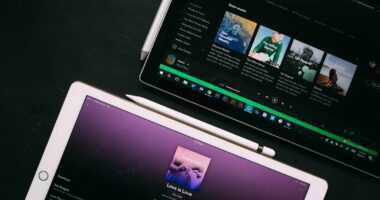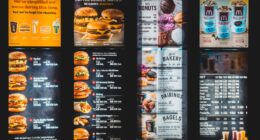In today’s digital age, marketing your music is more important than ever. With the rise of streaming platforms and social media, there are endless opportunities to reach a wider audience and connect with fans all over the world. However, with so much competition in the music industry, it’s crucial to have a well-rounded marketing strategy to stand out from the crowd.
Marketing your music not only helps you gain exposure and increase your fanbase, but it also allows you to build a strong brand and establish yourself as an artist. By effectively promoting your music, you can create a loyal following that will support you throughout your career.
Key Takeaways
- Marketing your music is crucial for success in the music industry.
- Creating a marketing plan for your latest release is essential to ensure maximum exposure.
- Social media is a powerful tool for promoting your music and engaging with your audience.
- Building a fanbase requires consistent engagement and interaction with your audience.
- Advertising and promotion strategies can help increase your reach and exposure.
Creating a Marketing Plan for Your Latest Release
Before diving into marketing your latest release, it’s important to set clear goals for what you want to achieve. Do you want to increase your streaming numbers? Gain more followers on social media? Sell more merchandise? By identifying your goals, you can tailor your marketing efforts to achieve them.
Once you have set your goals, it’s time to identify your target audience. Who are the people that are most likely to enjoy your music? What demographics do they fall into? Understanding your target audience will help you create content that resonates with them and increases the chances of them becoming fans.
Creating a timeline for your marketing plan is essential to ensure that you stay organized and on track. Break down the tasks that need to be completed leading up to the release date, such as creating promotional materials, scheduling social media posts, and reaching out to influencers or industry professionals. By having a timeline in place, you can ensure that all aspects of your marketing plan are executed smoothly.
Utilizing Social Media to Promote Your Music
Social media platforms have become powerful tools for musicians to promote their music and engage with their audience. However, it’s important to choose the right platforms that align with your target audience. For example, if your music appeals to a younger demographic, platforms like TikTok and Instagram may be more effective than Facebook.
Once you have chosen the right platforms, it’s important to create engaging content that captures the attention of your followers. This can include behind-the-scenes footage, live performances, music videos, or even personal updates. The key is to provide value to your audience and give them a reason to keep coming back for more.
Interacting with your followers is also crucial in building a strong fanbase. Responding to comments, direct messages, and engaging in conversations shows that you value your fans and appreciate their support. This can help foster a sense of community around your music and create loyal fans who will support you throughout your career.
Building a Fanbase: Engaging Your Audience
Engaging with your fans goes beyond just interacting with them on social media. It’s about creating a community around your music where fans feel connected to you and each other. This can be done through various means such as hosting live Q&A sessions, fan meetups, or even creating a fan club.
Offering exclusive content is another effective way to engage your audience and make them feel special. This can include releasing limited edition merchandise, offering early access to new music or behind-the-scenes content, or even hosting private concerts or events for your most dedicated fans. By providing exclusive content, you not only reward your fans for their support but also create a sense of exclusivity that can help drive excitement and loyalty.
Music Marketing: Advertising and Promotion Strategies
While organic growth through social media and word-of-mouth is important, sometimes it’s necessary to invest in paid advertising options to reach a wider audience. Platforms like Facebook Ads, Instagram Ads, and YouTube Ads allow you to target specific demographics and reach potential fans who may not have discovered your music otherwise.
In addition to paid advertising, promoting your music through blogs and playlists can also be highly effective. Reach out to music bloggers and influencers in your genre and ask if they would be interested in featuring your music on their platforms. Getting your music featured on popular playlists can also help increase your visibility and reach a wider audience.
Utilizing email marketing is another powerful tool in your music marketing arsenal. Building an email list allows you to directly communicate with your fans and keep them updated on new releases, upcoming shows, and exclusive content. By providing value through your emails, such as exclusive discounts or early access to new music, you can build a loyal fanbase that eagerly awaits your updates.
Music Industry Directory: Connecting with Industry Professionals

Connecting with industry professionals can open doors and provide opportunities for your music career. Whether it’s record labels, booking agents, or music supervisors, having the right contacts can help you take your music to the next level.
Finding the right contacts can be challenging, but there are resources available such as music industry directories that provide contact information for industry professionals. These directories can help you find the right people to reach out to and pitch your music.
Building relationships with industry professionals is crucial in establishing yourself as an artist. Attend industry events, conferences, and networking events to meet people in the industry and make connections. Building genuine relationships based on mutual respect and shared interests can lead to collaborations, partnerships, and even career opportunities.
Pitching your music to industry professionals requires a well-crafted pitch that highlights what makes your music unique and why it would be a good fit for their platform or project. Take the time to research the person you are pitching to and tailor your pitch to their specific needs and interests. Personalization goes a long way in making a lasting impression.
Music Professionals Directory: Finding the Right Team
Building a team that supports your vision is essential in navigating the music industry. Surrounding yourself with the right team members can help you achieve your goals and take your music career to new heights.
Finding the right team members can be a challenge, but resources like music professionals directories can help you find the right people for your team. Whether it’s a manager, publicist, booking agent, or producer, having a team that believes in your music and understands your vision is crucial.
When building your team, it’s important to look for individuals who have experience and expertise in the areas where you need support. For example, if you struggle with marketing and promotion, hiring a publicist or marketing manager can help alleviate that burden and allow you to focus on creating music.
Collaborating with your team is key in achieving success. Regular communication, setting clear goals, and working together towards a common vision can help ensure that everyone is on the same page and working towards the same goals. Building a strong team dynamic based on trust and open communication is essential in navigating the challenges of the music industry.
Collaborating with Influencers and Brands
Collaborating with influencers and brands can provide a significant boost to your music career. Influencers have large followings and can help expose your music to new audiences, while brands can provide opportunities for sponsorships or partnerships that can help fund your music projects.
Finding the right influencers and brands to collaborate with requires research and understanding of your target audience. Look for influencers or brands that align with your music genre or style and have a similar target audience. This ensures that the collaboration feels authentic and resonates with both your fans and their followers.
Creating mutually beneficial partnerships is key in collaborating with influencers and brands. Offer something of value to them, whether it’s exposure to your fanbase, exclusive content, or even financial compensation. In return, they can provide exposure to their followers or resources that can help further your music career.
Leveraging the reach of influencers and brands can significantly increase your exposure and reach new fans. By tapping into their existing fanbase, you can introduce your music to a wider audience and gain new followers who may become long-term fans.
Maximizing Your Exposure: Touring and Live Performances
Touring and live performances are not only a great way to connect with your audience on a personal level but also an effective way to promote your music. Planning a successful tour requires careful planning and coordination to ensure that each show is well-attended and leaves a lasting impression on your fans.
Engaging with your audience during live performances is crucial in creating a memorable experience. Interact with your fans, share stories behind your songs, and make them feel like they are a part of the show. This not only creates a strong connection between you and your fans but also encourages them to share their experience with others, leading to word-of-mouth promotion.
Utilizing live performances to promote your music goes beyond just the show itself. Take advantage of the opportunity to sell merchandise, collect email addresses for your mailing list, and promote upcoming releases or shows. By maximizing your exposure during live performances, you can turn casual listeners into dedicated fans who will support you throughout your career.
Measuring Success: Analyzing Metrics and Adjusting Your Strategy
Measuring the success of your marketing efforts is crucial in understanding what is working and what needs improvement. By identifying key metrics to track, such as streaming numbers, social media engagement, or ticket sales, you can gain insights into the effectiveness of your marketing strategy.
Analyzing your marketing efforts requires looking at the data and identifying trends or patterns. Are there certain types of content that perform better than others? Are there specific platforms or strategies that yield higher engagement or conversions? By analyzing the data, you can make informed decisions about where to allocate your time and resources.
Based on the results of your analysis, it’s important to adjust your strategy accordingly. If certain platforms or strategies are not yielding the desired results, it may be time to pivot and try something new. Experiment with different approaches, test new ideas, and continue to refine your marketing strategy based on what works best for your music and your audience.
In conclusion, marketing your music is essential in today’s music industry. By investing time and resources into creating a well-rounded marketing strategy, you can increase your exposure, reach a wider audience, and build a loyal fanbase. From creating a marketing plan to utilizing social media, building a fanbase, collaborating with industry professionals and influencers, and maximizing your exposure through touring and live performances, there are endless opportunities to promote your music and connect with fans. By measuring the success of your marketing efforts and adjusting your strategy accordingly, you can continue to grow as an artist and achieve your goals. So don’t wait any longer – start marketing your music today!
If you’re looking for more tips on marketing your music and building buzz for your latest release, be sure to check out this insightful article on MusicMarketing.digital. In their post titled “Hello World: A Beginner’s Guide to Music Marketing,” they provide valuable insights and strategies for artists who are just starting out in the industry. From creating a strong online presence to utilizing social media platforms effectively, this article offers practical advice to help you gain exposure and connect with your target audience. Don’t miss out on this resourceful read! Click here to dive into the world of music marketing.
FAQs
What is music marketing?
Music marketing is the process of promoting and selling music to a target audience. It involves creating a buzz around an artist or band, building a fan base, and increasing sales and streams of their music.
Why is music marketing important?
Music marketing is important because it helps artists and bands reach a wider audience and build a fan base. It also helps increase sales and streams of their music, which can lead to more opportunities for live performances, collaborations, and other career opportunities.
What are some effective music marketing strategies?
Some effective music marketing strategies include creating a strong online presence through social media and a website, collaborating with other artists and influencers, releasing singles and music videos, and performing live shows and tours.
How can I build buzz for my latest music release?
To build buzz for your latest music release, you can create a teaser trailer or preview of the music, release singles and music videos leading up to the full release, collaborate with other artists and influencers, and promote the release through social media and email marketing.
What are some common mistakes to avoid in music marketing?
Some common mistakes to avoid in music marketing include not having a clear target audience, not creating a strong online presence, not collaborating with other artists and influencers, and not promoting the music release effectively through social media and email marketing.









